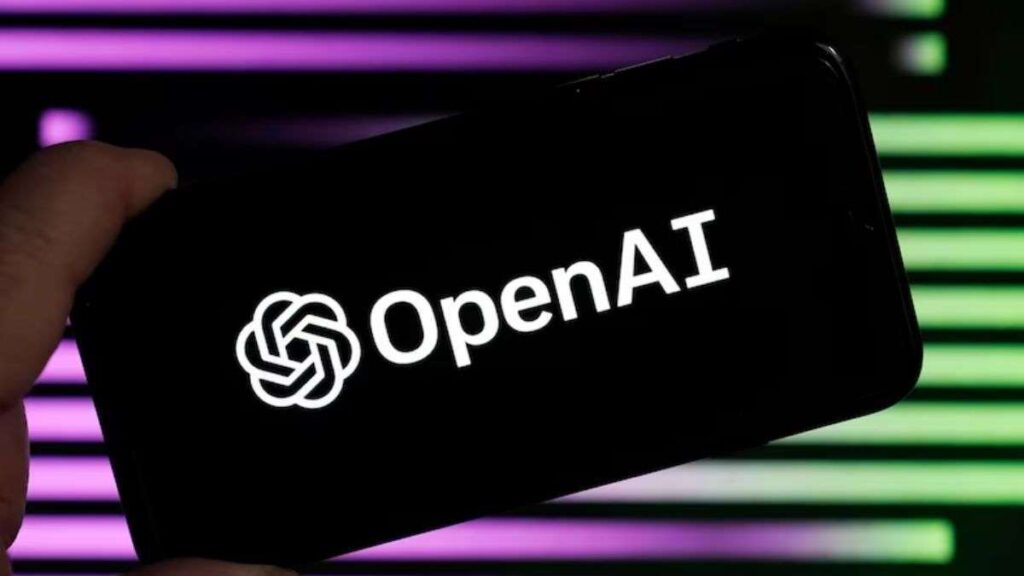Indian media sue OpenAI’s ChatGPT

India’s major news organizations are looking to join a lawsuit against OpenAI, the US company behind ChatGPT, for alleged unauthorized use of their content. Among the plaintiffs are some of India’s oldest publications, including The Indian Express, The Hindu, the India Today group, Gautam Adani-owned NDTV, and more than a dozen other outlets.
OpenAI has denied the allegations, stating that it uses “publicly available data” in accordance with “widely accepted legal precedents,” and provided a statement to the BBC.
On Wednesday, OpenAI’s CEO Sam Altman visited Delhi to discuss India’s plans to build a low-cost AI ecosystem with IT Minister Ashwini Vaishnaw. Altman expressed that India “should be one of the leaders of the AI revolution” and clarified that his earlier 2023 comments about Indian firms struggling to compete were taken out of context. “India is an incredibly important market for AI in general and for OpenAI in particular,” he said during the event.
The lawsuit filed in November by Asia’s largest news agency, Asian News International (ANI), is the first of its kind in India. ANI claims that ChatGPT used its copyrighted material without permission, seeking damages of ₹20 million ($230,000 or £185,000). This case is significant for OpenAI, as India already boasts the largest user base for ChatGPT, and OpenAI plans to expand further into the country.
ChatGPT, like other AI chatbots, is trained using vast datasets scraped from the internet. India’s content from nearly 450 news channels and 17,000 newspapers is valuable for this purpose, but the legality of what material ChatGPT can collect remains unclear.
OpenAI faces lawsuits worldwide from publishers, artists, and news organizations accusing it of using their content without authorization. The most notable of these was filed by The New York Times in December 2023, which seeks “billions of dollars” in damages from OpenAI and its backer, Microsoft.
Vibhav Mithal, an AI law expert from Indian law firm Anand and Anand, noted that the outcome of the ANI case could influence how AI models are developed in the future. A ruling in ANI’s favor could lead to more legal cases and prompt AI companies to enter into licensing agreements with content creators, something already being explored by some companies. On the other hand, a ruling in OpenAI’s favor might give companies more freedom to use copyrighted content for training AI models.
ANI’s lawsuit argues that OpenAI used its content to enhance ChatGPT without authorization, benefiting the company financially. Before taking legal action, ANI claimed it had informed OpenAI about the unauthorized use and even offered a licensing agreement, which OpenAI reportedly declined. ANI also claims that ChatGPT continues to access its content from its subscribers’ websites, despite being blocked, and sometimes provides its content verbatim, harming ANI’s credibility.
The news agency is seeking both compensation for damages and an order to stop OpenAI from storing or using its work. OpenAI, in response, argues that the lawsuit should not be filed in India because the company and its servers are not located in the country, and the chatbot was not trained there.
In December, the Federation of Indian Publishers, representing 80% of Indian publishers, filed an application to join the case, claiming they were directly affected. A month later, the Digital News Publishers Association (DNPA) and several media outlets filed similar requests, arguing that OpenAI had entered licensing deals with international publishers but not with Indian ones. The DNPA warned that the case could impact journalists’ livelihoods and the Indian news industry as a whole. OpenAI, however, argues that chatbots are not substitutes for news subscriptions.
The court has yet to admit the applications from these publishers, and OpenAI contends that the court should not hear them. However, the judge clarified that even if these organizations are allowed to present their arguments, the court will limit its focus to ANI’s claims.
Meanwhile, OpenAI maintains that it is engaging in “constructive partnerships and conversations” with news organizations globally, including those in India, to work together.
In the broader context of AI regulation, experts say the global lawsuits against ChatGPT could shine a light on areas that have not yet been properly scrutinized, such as the data used to train AI chatbots. Dr. Sivaramakrishnan R Guruvayur, an AI ethics researcher, suggested that the ANI-OpenAI case could lead to legal assessments of the data sources for AI models.
Governments worldwide are grappling with how to regulate AI. Italy has already blocked ChatGPT over privacy concerns, and the European Union passed AI regulations in 2023. In India, the government has signaled its intention to regulate AI tools, issuing advisories on AI testing, permissions, and ensuring that AI-generated responses comply with Indian law, particularly during elections.
